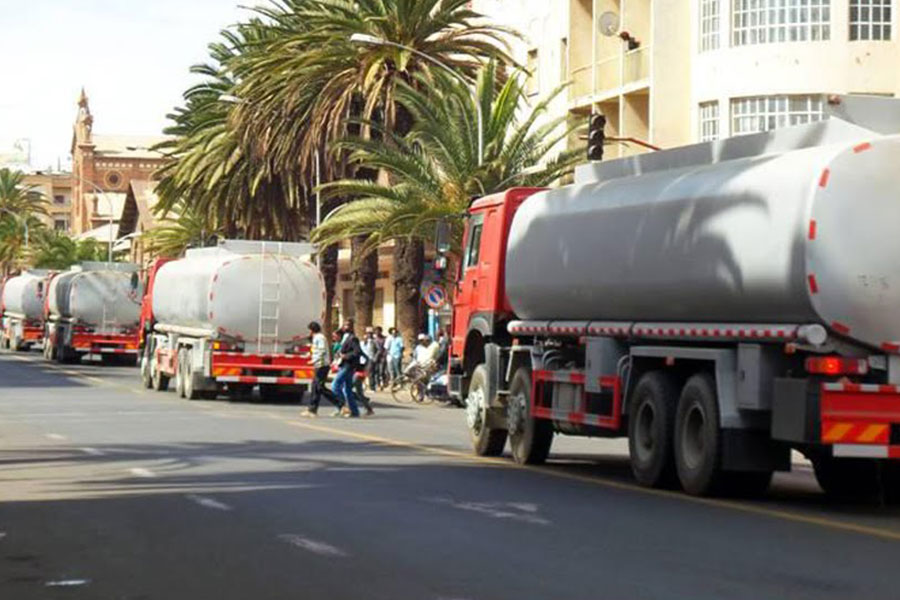
Five years after teetering on the brink of a tumble due to alarmingly high levels of non-performing loans (NPLs), the state-owned Development Bank of Ethiopia (DBE) has staged an impressive recovery, its senior executives told federal legislators last week. The Bank has built a robust capital base of 39.7 billion Br, second only to the Commercial Bank of Ethiopia (CBE), another state-owned company.
A state-owned policy bank, DBE received a crucial lifeline four years ago when the Council of Ministers approved a capital injection of 28.5 billion Br. Shortly, the National Bank of Ethiopia (NBE) mandated commercial banks to purchase bonds DBE issues amounting to one percent of their annual loans and advances.
According to Tewodros Mekonen (PhD), a senior macroeconomist at the International Growth Centre (IGC), policy banks are financed through capital markets, bond issuance, government budgetary support, or financial flows from development partners. Over the past three years, DBE has raised about 39.04 billion Br from mandatory bond sales.
"I've not heard of mandatory bond purchases elsewhere in the world," said Tewodros.
However, these policy changes were instrumental in reviving the Bank’s performance over the past three years.
DBE's annual report for 2023 shows revenues of 8.5 billion Br and net income of 1.2 billion Br. Its robust financial standing, with total assets of 95 billion Br and total equity of 20 billion Br, results in a net profit margin of 14.12pc. This margin indicates the bank's efficiency in converting its revenues into profit, suggesting a strong control over costs and expenses.
However, the asset turnover ratio results in a relatively low figure, revealing that DBE's assets are not being utilized as efficiently. This inefficiency could be typical for development banks like DBE, which often focus on long-term projects rather than immediate returns.
The equity multiplier, a measure of financial leverage, stands at 4.75, revealing how DBE employs a substantial level of debt to finance its assets. While high leverage can boost the return on equity (ROE), it also introduces higher risk, particularly if the bank encounters problems meeting its debt obligations. However, its return on assets (RoA) improved from negative one percent five years ago to 4.9pc, and its return on equity (RoE) from -34.5pc to 21.9pc last year.
Financial analysts observe that DBE's executives could focus on improving asset utilisation by optimising loan portfolios and enhancing asset efficiency. Maintaining or increasing the net profit margin through effective cost management could contribute to a higher RoE. Balancing financial leverage to avoid excessive risk is crucial, as is ensuring sustainable debt levels and prudent leverage practices. DBE’s debt portfolio has seen substantial improvement, with the NPL ratio dropping from a high of 57.6pc to about 7.8pc, nearly half of the central bank’s requirement.
Mohammed Abdo, chairperson of the Standing Committee, sounded curious about how DBE managed to reduce its non-performing loans so drastically without resorting to a mechanism like the Liability Asset Management Corporation (LAMC), which absorbed over half a billion Birr of debt owed by several state-owned enterprises to the CBE. Yohannes Ayalew (PhD), president of DBE, attributed the success to disciplined loan portfolio management, which includes no rescheduling of repayments, no capitalisation of interest, and quick responses to non-performing loans.
According to the Ministry of Finance’s nine-month report, transforming DBE’s loans into long-term bonds has impacted domestic loan repayment rates. The government’s strategy of extending short-term debt instruments into long-term bonds has seen outstanding government bonds rise from 36.5 million Br four years ago to nearly 627 million Br in 2022/23. DBE’s liability-to-asset ratio has also been improving, falling from 0.913 five years ago when it had assets of 85.1 billion Br to the current 0.778 mark despite more than doubling its assets to 179 billion Br.
The macroeconomist noted that policy banks worldwide engage in long-term investments deemed unsuitable for commercial banks. These institutions, which do not take deposits from the public, must rely on feasible long-term projects to support government development goals.
"A certain level of high NPL is expected," he told Fortune.
Tewodros referred to successful policy banks in some Asian countries while stressing the need for robust management and adequate information to manage portfolios with broad risk successfully in the long run. This sentiment is echoed in a World Bank study, which notes that effective corporate governance depends on the flow of accurate, timely, and relevant information within development banks and externally to the government, legislature, and the public.
DBE implemented a five-year reform strategy that included sweeping personnel changes on the board of directors, enhanced loan recovery procedures, and the introduction of specialised credit facilities. These measures were credited for addressing the risks of credit portfolios that once had the highest NPL in the industry.
However, operational limitations and regional cooperation issues persist.
Yohannes told members of the parliamentary standing committee for State Development Institutions Affairs that under previous management, "window dressing" had inflated the bank’s NPL rate to around 57.8pc, with delinquent loans erroneously reported as capital. To illustrate the extent of alleged past mismanagement, Yohannes shared a sarcastic anecdote: "Staff frequently asked how [customers] opted to pay loans back."
DBE’s board of directors, now chaired by Teklewold Atnafu, a senior monetary policy advisor to the Prime Minister, has overseen the Bank's return to profitability. The Bank posted a 3.9 billion Br profit in the third quarter of the 2023/24 fiscal year, a noteworthy turnaround from the 345.72 million Br loss five years ago, although still below last year's 6.3 billion Br profit.
Under Yohannes’s management, once vice governor of the central bank, DBE implemented strict loan recovery strategies and prudent foreclosure management procedures. The Bank plans to raise capital in Ethiopia’s emerging capital markets, with ongoing discussions with capital market authority officials.
"The whole point is bringing down the NPL to reasonable levels," Yohanned told Fortune.
However, DBE faces difficulties with regional state officials over land allocations for projects and the use of project assets held as collateral during foreclosures.
Getachew Waqe, vice president, expressed concerns over delays in obtaining land use permits necessary for lease financing due to regional state non-cooperation.
"We're treated as some foreign entity," he lamented.
Getachew cited a project in Sebeta, Sheger City, valued at around half a billion Birr, which has been delayed for months due to land issues. He also noted growing incidents of properties held as collateral sold to third parties without the Bank’s consent.
The Standing Committee Chairperson acknowledged concerns over regional states' land appropriations. He suggested the Bank consider constructing infrastructure like water wells to demonstrate solidarity with local communities.
For Yohannes, "restoring the public perception of DBE is essential."
The Bank, which did not issue any new loans three years ago, has approved around 44.6 billion Br in the past nine months and disbursed approximately 25 billion Br. About 68.43pc of the approved loans were allocated to the manufacturing sector, followed by agriculture with 14pc.
PUBLISHED ON
[ VOL
, NO
]

Fortune News | Sep 04,2021

Fortune News | Jan 22,2022

Radar | Feb 02,2019

Radar | May 25,2024

Radar | Jun 15,2025

Dec 22 , 2024 . By TIZITA SHEWAFERAW
Charged with transforming colossal state-owned enterprises into modern and competitiv...

Aug 18 , 2024 . By AKSAH ITALO
Although predictable Yonas Zerihun's job in the ride-hailing service is not immune to...

Jul 28 , 2024 . By TIZITA SHEWAFERAW
Unhabitual, perhaps too many, Samuel Gebreyohannes, 38, used to occasionally enjoy a couple of beers at breakfast. However, he recently swit...

Jul 13 , 2024 . By AKSAH ITALO
Investors who rely on tractors, trucks, and field vehicles for commuting, transporting commodities, and f...

Oct 25 , 2025
The regulatory machinery is on overdrive. In only two years, no fewer than 35 new pro...

Oct 18 , 2025
The political establishment, notably the ruling party and its top brass, has become p...

Oct 11 , 2025
Ladislas Farago, a roving Associated Press (AP) correspondent, arrived in Ethiopia in...

Oct 4 , 2025
Eyob Tekalegn (PhD) had been in the Governor's chair for only weeks when, on Septembe...